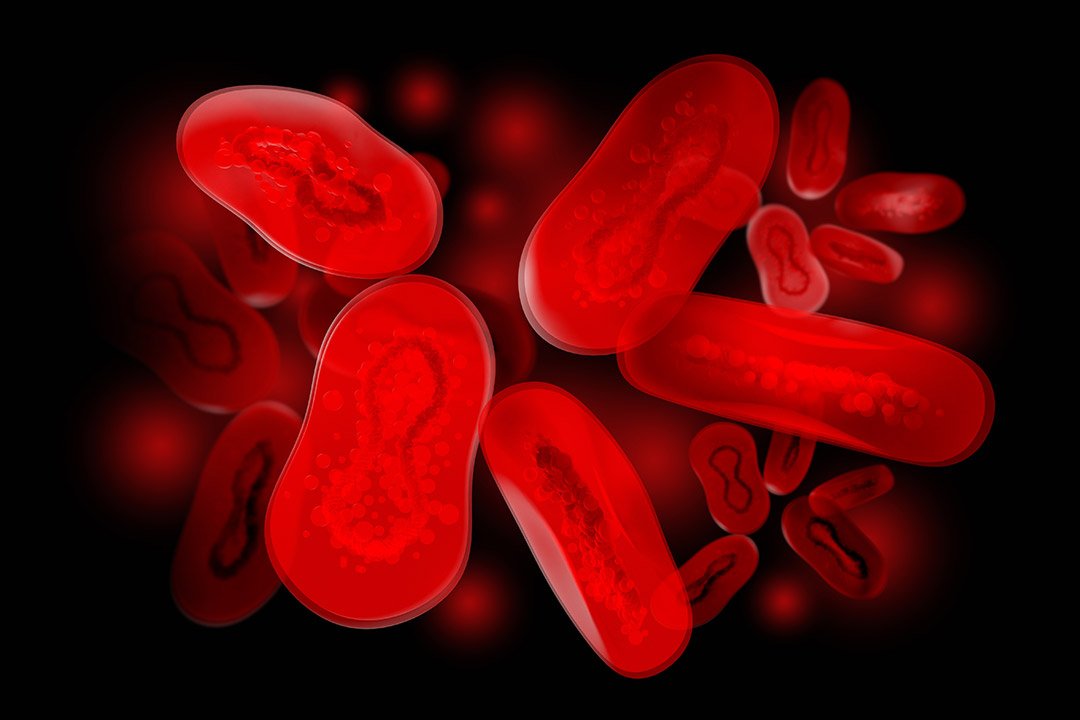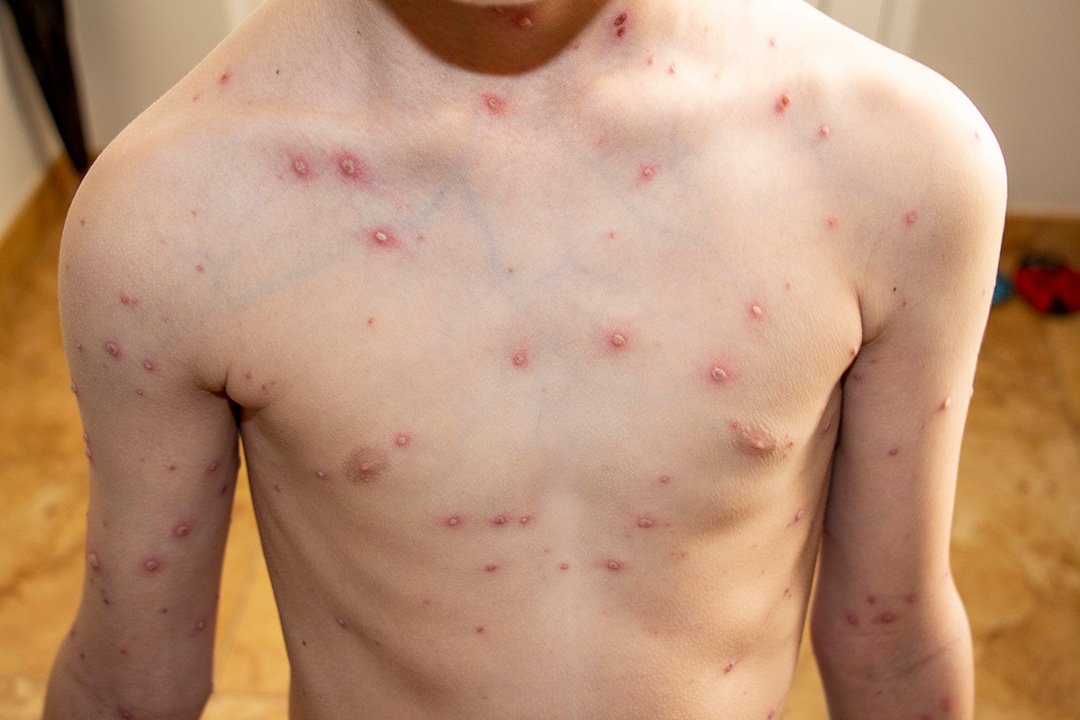Monkeypox in the UK: what travellers should know?
Reading Time: 4 minutes
Table of contents
- Monkeypox: what is the situation in the UK?
- How is the UK healthcare system dealing with Monkeypox?
- What happens if you are infected with Monkeypox in the UK?
- How does Monkeypox affect traveling?
- What happens if you catch Monkeypox while abroad?
- Monkeypox patients can travel in air ambulances
- Contact us for an air ambulance to and from the UK
On the 7th of May 2022, the UK detected the first confirmed case of the Monkeypox virus. It was a traveller who had just come to the UK from Nigeria. This is a virus that is usually found in west or central Africa and the uncommonness of it being spread in other parts of the world has created a sense of consternation globally. People might be reminiscent of Covid-19 and how it changed their lives and are anticipating the same for Monkeypox. Will this virus affect their lives and travelling as much as Covid-19 did?
What you should know as a UK resident or someone planning to go to the UK?
While the UK has recorded the most number of cases of confirmed Monkeypox, it has already designed a healthcare strategy to deal with this crisis. A network called the ‘High Consequence Infectious Disease’ (HCID) conducting research and working on treatment options available for Monkeypox patients has been put together. Those needing to travel to the UK have to practice enhanced precautions and infected travellers can get back to the UK either in air ambulances or private jets to avoid compromising on the safety of others.
Monkeypox: what is the situation in the UK?
Ever since the first detected case in May, the number of Monkeypox patients in the UK has been steadily growing. On the 6th of June 2022, the UK Health Security Agency (UKHSA) advanced that 77 more cases were recorded, bringing the total in the country on that day to 302. 287 of these are in England, 10 in Scotland, 2 in Northern Ireland and 3 in Wales. It should be noted that there is an unusually high number of people infected with the virus without any travel links to Africa, which means that the virus is being spread across the community at a fairly rapid rate. Key factor to be considered about the current spread is it is the first time that the virus is being transmitted from person to person in the UK without any travel links to an endemic country.
According to health officials, the risk to the general population is low but anyone can get Monkeypox, more particularly if they had close contact with someone having symptoms. When it comes to the intensity of the symptoms, they usually clear up within a few weeks and infections are quite mild. Hospitalization rates are low and no deaths have been recorded so far. However, Monkeypox can be more severe among those who are more vulnerable or have existing medical conditions.

How is the UK healthcare system dealing with Monkeypox?
The increase in the number of cases has pushed the UK government to amend the law to enable the listing of the Monkeypox virus as a notifiable disease as from the 8th of June 2022. This means that medical professionals in England are required to notify either their local council or a local health protection team in case they suspect a patient of being infected with Monkeypox. Following the same guidelines, laboratories must also notify the UKHSA in case of identification of the Monkeypox virus.
The NHS has already put together a group of hospitals, a network called the ‘High Consequence Infectious Disease’ (HCID), to take care of patients infected with the Monkeypox virus. Following thorough research, officials have designed a two-fold strategy to treat victims of the Monkeypox virus. The first course of action is to administer a vaccine to prevent the potential spread of a related, but more deadly, disease. These vaccines have also proven to be effective against Monkeypox if administered shortly after exposure. However, once symptoms get more severe, researchers are suggesting a new generation of drugs, the antiviral pill tecovirimat, to reduce the effects of the Monkeypox virus.
It should be noted that health authorities in the UK are also offering Bavarian Nordic's vaccine, Imvanex, to relatives and contacts of the patients with confirmed or suspected Monkeypox in a bid to prevent the spread of the virus.
What happens if you are infected with Monkeypox in the UK?
For mild symptoms, those in the UK are advised to isolate themselves at home and to abstain from having sex. To limit the spread of the virus, standard cleaning and disinfection methods should be established. Patients should wash their clothing and bed linens themselves with detergents in a washing machine.
What happens in case you start showing more symptoms? Usually, patients visit a healthcare facility once the rashes start. There
- A swab will be taken and sent to the rare and imported pathogens lab run by the UK Health Security Agency.
- Meanwhile, patients will be sent home to isolate and recover
- Contact tracing teams will work on identifying contacts who might have been exposed to the virus
- The appropriate treatment will be administered depending on the situation.
How does Monkeypox affect traveling?
At the time of writing, 09/06,2022, travel restrictions following the outbreak of the have not been implemented in any country. However, there are concerns being raised about the travel plans during the upcoming summer season, gatherings, parties and festivals. There might be stricter regulations affecting travels in Europe this summer in line with developments regarding the number of cases.
Brits are advised to remain on the lookout for more for symptoms of Monkeypox and the Centers for Disease Control and Prevention (CDC) has raised a level 2 Monkeypox travel alert, warning US citizens to practice enhanced precautions such as avoiding close contact with sick people or avoiding contacting with dead or live animals when travelling.
What happens if you catch Monkeypox while abroad?
Regardless of the fact that travel restrictions are not in place yet, it might be impossible for someone showing visible signs of a Monkeypox infection to board a commercial plane. Typically, commercial airline rules can refuse sick patients who risk contaminating others onboard their plane to ensure the safety of other passengers and their crew and to limit the spread of the disease.

What happens if you become infected with Monkeypox in Africa. First of all, you will not be able to benefit from the cutting-edge technology available to those in the UK and as researchers have advanced, conducting clinical trials of the drugs to treat Monkeypox patients in Africa can be challenging. The same might be applicable if you are on holidays or on business in another country which is closer to the UK, such as Spain, Portugal or Belgium. Let’s add to this the fact that you will not be able to benefit from free healthcare provided by the NHS outside of the UK.
Monkeypox patients can travel in air ambulances
Medical Repatriation UK has made it possible to come back to the UK even if you become infected with Monkeypox while being abroad. It has air ambulances fitted with the necessary equipment to transport Monkeypox patients, even if they are experiencing severe symptoms or they have prior health complications.
Booking a medical flight with Medical Repatriation UK implies that patients can benefit from state-of-the-art medical equipment and professionals mid-air. We can also equip our air ambulances with special equipment and specialist doctors in case the patient has a specific medical condition that requires more attention and care.
To ensure the safety of everyone involved in the patient transport of a Monkeypox patient, Medical Repatriation UK has the necessary isolation devices and sanitary protocols in place. With Medical Repatriation UK, you can benefit from:
- Air ambulances that can reach any location worldwide
- Multilingual agents that can organize your patient transfer, even if you do not understand or speak the language of the country that you are in
- Aviation experts available 24/7
- Free consultation by experts
- Advice and assistance designing a customized air ambulance solution for you
- Complete handover of the organisational process to us
- Ground transportation in both countries
Note: Medical Repatriation UK also has private jets for patients with mild symptoms that do not require medical assistance or for travellers who do not want to risk flying on a commercial airline and becoming infected.
Contact us for an air ambulance to and from the UK
If you become infected with Monkeypox abroad and you wish to get back to the UK or you need a private jet to travel in and out of the UK, get in touch with us. Medical Repatriation UK has a group of experts always available to assist you. Contact them by:
- Telephone: +44 (0) 20 3608 0483
- Email: info@medical-repatriation.uk
- Our contact form